If you're attending the All Things Open conference in Raleigh, NC this year be sure to check out our Lightning Talk series on Tuesday, October 15 at 12:45 pm EDT.
This is an amazing line-up of quick talks you won't want to miss. Speakers have five minutes to enlighten the audience about an open source topic they are passionate about. We've got everything from DevOps to Kubernetes, and how open source is used in education, healthcare, government, design, and more. Grab your lunch, find a seat, warm up your Twitter fingers, and get ready for the fastest hour at All Things Open.
Share your favorite thoughts and take-aways using hashtag #AllThingsOpen.
The lineup
- Why do we contribute to open source? by Gordon Haff, Red Hat | @ghaff
- Finding your next open source contribution with Open Sauced by Brian Douglas, GitHub | @bdougieYO
- Open source design: How to encourage designers contributing to OSS by Eriol Fox, Ushahidi | @erioldoesdesign @opendesignis
- VistA on Linux – A complete FOSS stack for electronic health records by K.S. Bhaskar, YottaDB | @ksbhaskar
- #IAmCS: An open source approach for equity-focused CS education by Aria Chernik, Duke University and Mary Hemphill, NC Department of Public Instruction | @ariachernik and @limitless__lady
- Organizing open source for cities by Jacob Green, Mosslabs.io | @jacoblyopen
- How to start contributing to Kubernetes when you have a full time job by Tara Gu, IBM | @taraguduke
- Are you being the right person for DevOps by Josh Atwell, Splunk | @josh_atwell
Lightning Talks will begin at 12:45pm EDT (16:45 UTC) on October 15, 2019, on the main stage in Ballroom B on the 4th floor of the Raleigh Convention Center.
All lightning talks will be recorded for future playback on the Opensource.com YouTube channel. A live stream will not be available for this event.
Welcome from Opensource.com & #EnableSysadmin
Why do we contribute to open source?
Open source communities as a whole gain from participants who participate and contribute because they want to. Understanding what's worked and what hasn't worked to motivate in the broader context, as has been studied by both academics and practitioners, can lead to better outcomes across open source communities as a whole.
In this talk, Gordon Haff, the author of How Open Source Ate Software, will take you on a quick tour through fundamental research about motivations both as a theory and as practiced in open source projects. Armed with this knowledge, you'll be better prepared to both understand and guide the open source development process.

About - Gordon Haff
Gordon Haff is Technology Evangelist at Red Hat where he works on emerging technology product strategy; writes about tech, trends, and their business impact; and is a frequent speaker at customer and industry events. He's the author of From Pots and Vats to Programs and Apps and How Open Source Ate Software. He's the host of the Innovate @Open podcast.
Finding your next open source contribution with Open Sauced
In this talk, attendees will get a brief intro into my open source experience/challenges, some background on why the project exists, an explanation about the infrastructure and plan for the project, and of course, a call for contributors!
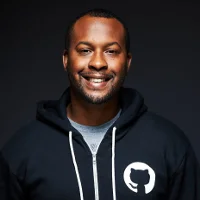
About - Brian Douglas
Brian Douglas is a Developer Advocate at GitHub, where he works on the increasing use of the GitHub's platform-specific features. In addition to that, Brian has a passion open source and loves mentoring new contributors.
Open source design: How to encourage designers contributing to OSS
Short tips and advice to enable your open source software repos for design contributions.

About - Eriol Fox
Eriol is a Design Lead who has worked in-house roles for 9+ years. Now working at Ushahidi, a humanitarian, non-profit technology leader, developing open-source, digital tools to help people with better democratic process, human rights issues, natural and human-made disasters.
Eriol is a non-binary, queer person who uses they/them pronouns and an LGBTQIA+ advocate. They are deeply passionate about intersectional inclusion and promoting healthy attitudes towards mental health in the tech sector.
![]() @erioldoesdesign
@erioldoesdesign ![]() @opendesignis
@opendesignis
VistA on Linux – A complete FOSS stack for electronic health records
The VistA healthcare information system developed by the US Department of Veterans Affairs (VA) is a mature, proven electronic health record system that is used throughout the VA system. Through the US Freedom of Information Act (FOIA), the source code for VistA is in the public domain. Although VistA was developed by the VA for its own unique needs, VistA has been extended to meet needs that the VA does not have, and there is an ecosystem of both expertise and functionality around VistA. Unlike other healthcare information systems developed in the US, VistA has been successfully deployed overseas, including at a nation-scale electronic health record system. The talk will discuss VistA, its history, its ecosystem, and what it takes to deploy it (or at least as much as can be discussed in a lightning talk!).
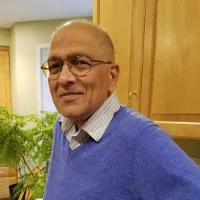
About - K.S. Bhaskar
A geek by training and instinct, Bhaskar has been programming computers for almost a half-century. He became a manager when he could no longer do useful work, and leads the FOSS YottaDB software project used in mission-critical applications around the world.
#IAmCS: An open source approach for equity-focused CS education
We are standing at the edge of a momentous moment for North Carolina's 1.5 million public school children, not to mention their families and future employers. The North Carolina State Board of Education has added Computer Science (CS) to the Standard Course of Study, and beginning in the 2020-2021 academic year, CS will be integrated into every K-12 classroom across North Carolina. We have a rare and critical opportunity to reimagine education for all North Carolina students -- including female students and students underrepresented in STEM fields -- and to situate North Carolina as a national leader in future-proof learning.
This monumental task of designing, building, and implementing equity-focused CS education across North Carolina demands an open source approach. In this lightening talk, we briefly explain our #IAmCS campaign aimed to raise awareness of the CS Initiative and close the gender inequity in CS. Using images and brief video of female CS leaders across the state, we will explain how the open source principles of inclusivity, collaboration, and community are guiding the campaign, and issue a direct call to action to the audience.
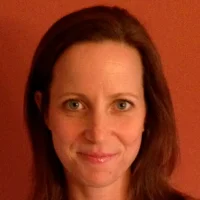
About - Aria Chernik
Aria F. Chernik, JD, PhD, is Associate Professor of the Practice at Duke University and Founder and Director of Open Source Pedagogy, Research + Innovation (ospri.ssri.duke.edu). Her work focuses on creating transformative, equity-focused learning contexts inspired by open source values and design principles.

About - Mary Hemphill
Dr. Mary Hemphill is Director of Computer Science & Technology Education at the North Carolina Department of Public Instruction and Co-Founder of Rebrand NC Education. As a bilingual educational administrator with over 13 years of progressive experience, I strive to implement my skills, expertise, & experience for the overall enrichment of young lives & learners; the development of thriving learning communities; & the support of positive educational leadership.
Organizing open source for cities
Open Source is vital in the expansion wave of smart cities. Yet, where is the sustainable municipal Open innovation economic engine/s, and how do we start them spinning at scale? — Only through structured collaboration and community. The open source communities and institutions are highly successful at this in other industries. In cities, open source is not enough, we also need open data, open standards, etc. As we scale, openness and transparency, interoperability, feedback mechanisms, security, non-bias, privacy, become dominating design requirements. Accelerating the scale of good solutions needs help and structure. There are 18,000 municipalities in the US alone, currently siloed, and meaningful technical and community cooperation is minimal. We need a new flexible institutional framework to advance cooperation and scaling within our interdisciplinary design requirements.
The open source program office is a successful industry construct in the open source world, and we aim to investigate adapting this construct to accelerate and scale open cities; from open source software & services, open data, and standards, to non-bias, security, privacy, access, diversity, and above all TRUST!

About - Jacob Green
Jacob Green is the founder of Mosslabs.io (Municipal Open Source Software). He's on a roadshow for Open Source in Cities @scal.e
How to start contributing to Kubernetes when you have a full-time job
Do you want to start contributing to cool open source projects but you don't know where to start? How does it work if you have a full-time job? What if your manager doesn't like that you are spending time on side projects instead of your main job? I started contributing to Kubernetes last year as a hobbyist, and I'm offering my experience and suggestions on how to get you started.

About - Tara Gu
Tara is a software engineer at IBM. She started contributing to Kubernetes as a hobbyist in 2018. She has recently joined the IBM Digital Business Group Open Technology division and now contributes to Knative full-time. She is a member of Knative and Kubernetes. She enjoys running and weightlifting in her spare time.
Are you being the right person for DevOps
My spouse has a sign in our home "Marriage is more than finding the right person. It is being the right person." We learned from Erik in The Phoenix Project that the relationship between the business and IT is much like a dysfunctional marriage. In this short talk I'll outline some of the key characteristics we apply through the path of growing and maintaining a healthy relationship, mistakes we can avoid, and behaviors we can nurture. We'll take some time to think a little less about our own needs and get to understand better what we can be doing to be the right person for our counterparts in this crazy world we call DevOps.

About - Josh Atwell
Josh is a Senior Technology Advocate at Splunk, focused on helping IT organizations evolve to support the growing demands on them. He is the co-author of several popular books, a serial podcaster, has led numerous technology user groups, and is an awarded public speaker.

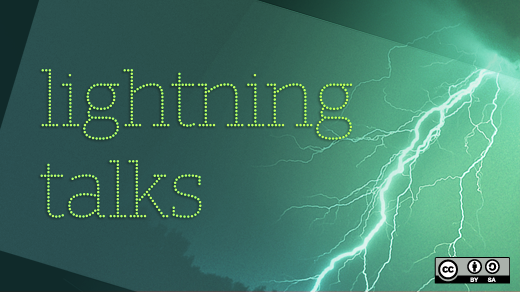









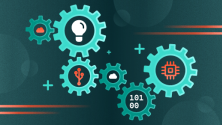



1 Comment